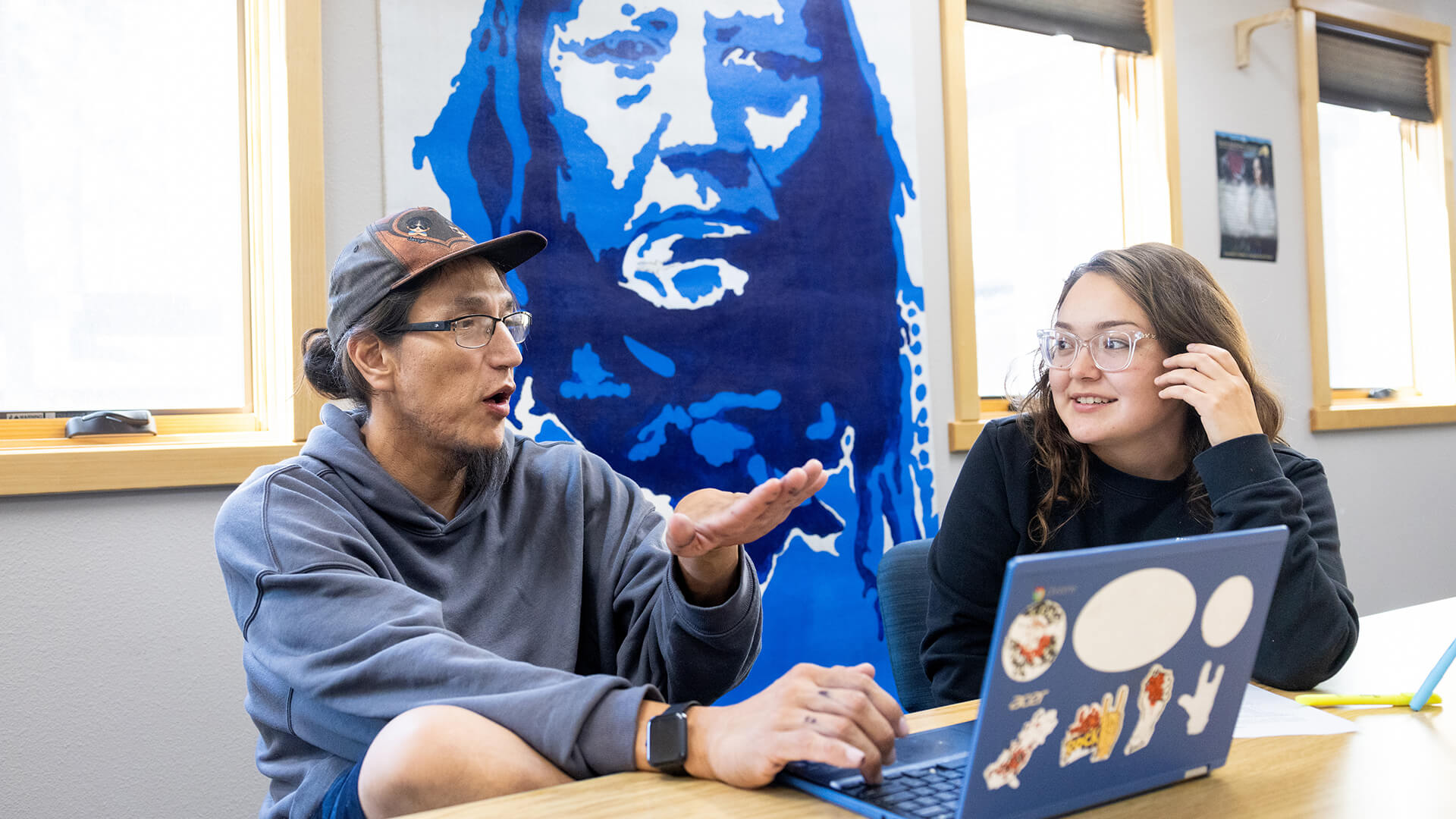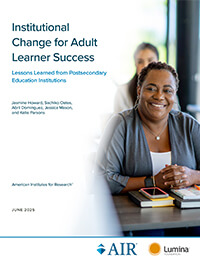The future of higher ed depends on how we serve these students today
Colleges eager to help adult learners—especially Black, Hispanic and Latino, and Native American adults who have historically been left behind—know this goal requires more than surface-level tweaks. It demands deep, sustained, and mission-driven institutional change.
A new report from the American Institutes for Research (AIR) offers timely insights into how forward-thinking colleges and universities are transforming to better serve this vital population and make higher education more responsive and equitable. At least 43 million Americans have some college but left without a degree or credential.
Today’s research confirms what we have long believed: truly supporting adult learners requires major changes to a school’s structure, culture, and processes. Read on to learn how three colleges are getting this done. To learn more, see AIR’s research on supporting postsecondary enrollment for adult learners of color.
Fundamental change is not optional
The colleges studied had one common strategy: a commitment to structural change. These colleges didn’t just add new programs; they rethought how they were organized. Dallas College is a case in point. Faced with the reality that adult learners could not complete credentials due to fragmented residency requirements across campuses, leaders unified seven independent colleges into a single institution. As one senior leader noted, “We had people who were taking classes all over. So we had to merge to enable that type of student to be able to get the credential on time.”
Other schools created new roles like student success coaches or navigators to deliver personalized, high-touch support tailored to the unique challenges of adult learners. These changes signal an institutional-level commitment to removing longstanding barriers, most notably a lack of funds, access, and time.
Data is much more than a tool
The colleges also efficiently use data to redesign systems and inform daily practice. For example, Cerritos College in California is building a culture of data-informed decision–making through its Students First Framework. The college has embedded key performance indicators in every department and invested in training to ensure staff can skillfully use dashboards and analytics. As one senior leader put it, “The change of the goals starts from the top, but the activities, the changes, start at the grassroots with the departments.”
This integration of data into both planning and operations empowers colleges to track outcomes, adjust in real time, and focus squarely on the needs of adult learners.
Culture change needs stories and champions
Perhaps the most powerful insight is how colleges are weaving change through human connection and storytelling. At Maryland’s Morgan State University, a Historically Black College and University, a leader emphasized the importance of collective ownership: “You can’t be the only champion on campus. So it’s making sure that you build a network of champions who are like you, engage, and you amplify when they are supporting and helping.”
The most impactful stories are those of adult learners who balance work, caregiving, and college dreams. Elevating these voices helps build a new culture.
Morgan State’s long-standing commitment to adult learners began with the establishment of the Center for Continuing and Professional Studies (CCPS) in 1963. CCPS supports students who have been out of school for five years or more, are parents or caregivers, or are employed full-time while attending school.
Start small and build
Transformation at these and other colleges is not just about policy or practice, it’s about people. Institutions that thrive start small, build momentum, and grow a network of believers. True change begins when we stop treating adult learners as an afterthought—and instead see them leading our future.
[Wendy Sedlak, Ph.D., is the strategy director for research and evaluation at Lumina Foundation, an independent foundation that helps all Americans keep learning beyond high school. Sedlak synthesizes data and evidence to guide Lumina’s strategy, documents effective practices, and measures progress. And as a member of the 2025 Mutz Philanthropic Leadership Institute, she is working to improve the lives of Hoosiers.]

